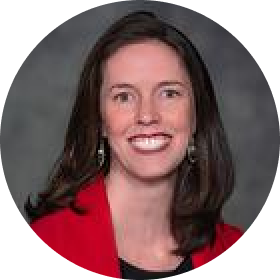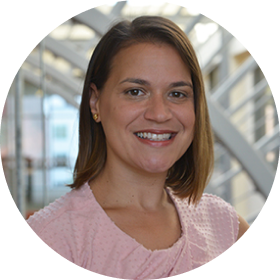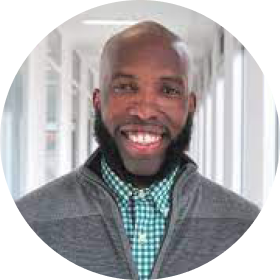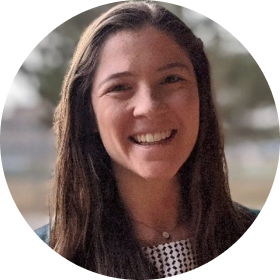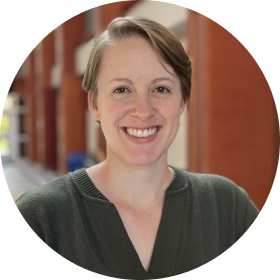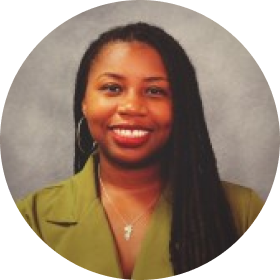The Levers that Institutions Can Use for Scaling Improvement

Equity-Based Teaching in Higher Education:
The Levers that Institutions Can Use for Scaling Improvement
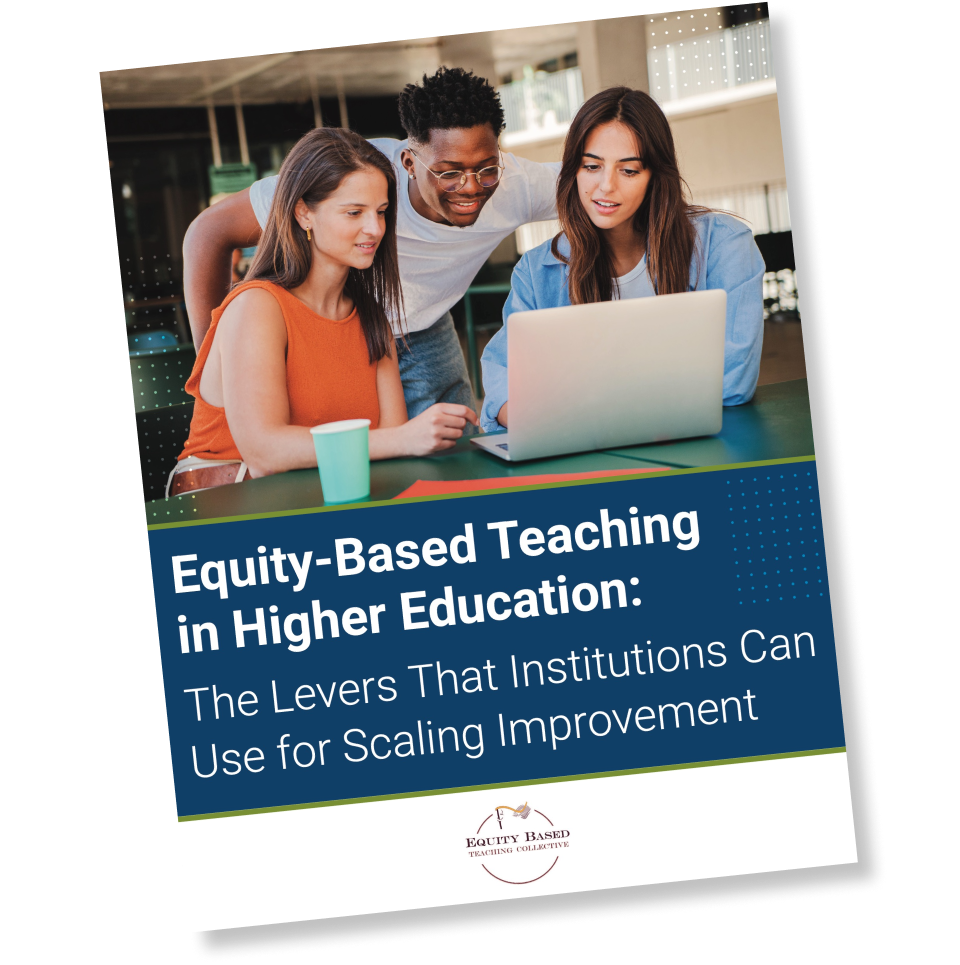
Summary
In this report, we describe what we mean by equity-based teaching (EBT)–an approach that supports all students, particularly those the data shows face greater barriers to academic success, Black, Latine, Indigenous and Low-Income (BLILI) students across disciplines–and articulate an ecosystem approach of how different stakeholders can interact to produce equity-based teaching and outcomes for BLILI students. We identify policies, programs, and practices for EBT improvement for different actors in the ecosystem.

Equity-based teaching is a commitment to achieving equitable learning experiences and outcomes for all students, and BLILI students in particular. Achieving an equitable learning environment for all students can only come from change within an entire educational ecosystem.
An ecosystem approach to equity-based teaching begins from the understanding that teaching and learning are shaped by and take place within multiple nested and interrelated contexts. Enacting equity-based teaching requires changing not only what happens in classrooms, but also the structural and institutional contexts in which education is embedded.
As we address those levers across the ecosystem, we are mindful to also tend to the evolving role of technology. The EBT policies and practices described in this report will not be successful unless the technology and its providers are also steeped in equitable practices.
Who is this report for?
We highlight 15 recommendations across five stakeholders: Institutional Leaders, Directors and Staff of Centers for Teaching and Learning, School Deans/Department Chairs, Faculty, and College Students. If you lead or are a member of one of these communities, we encourage you to view the recommendations across the ecosystem, but especially those focused on your specific role within the ecosystem.
See the bottom of the page for a text version of the infographic below.
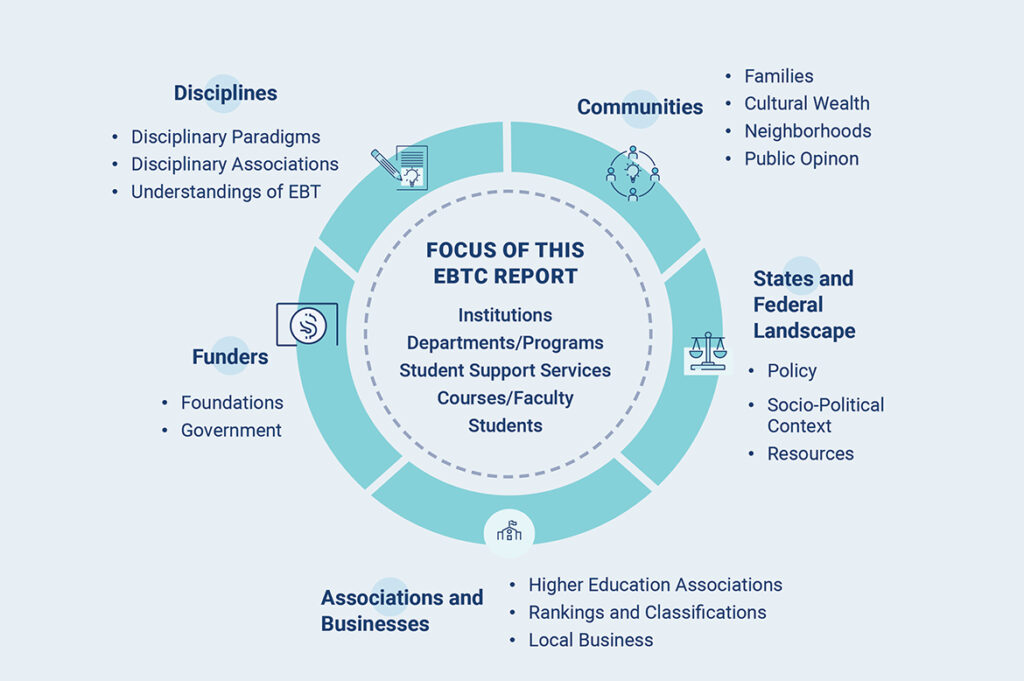
About EBTC
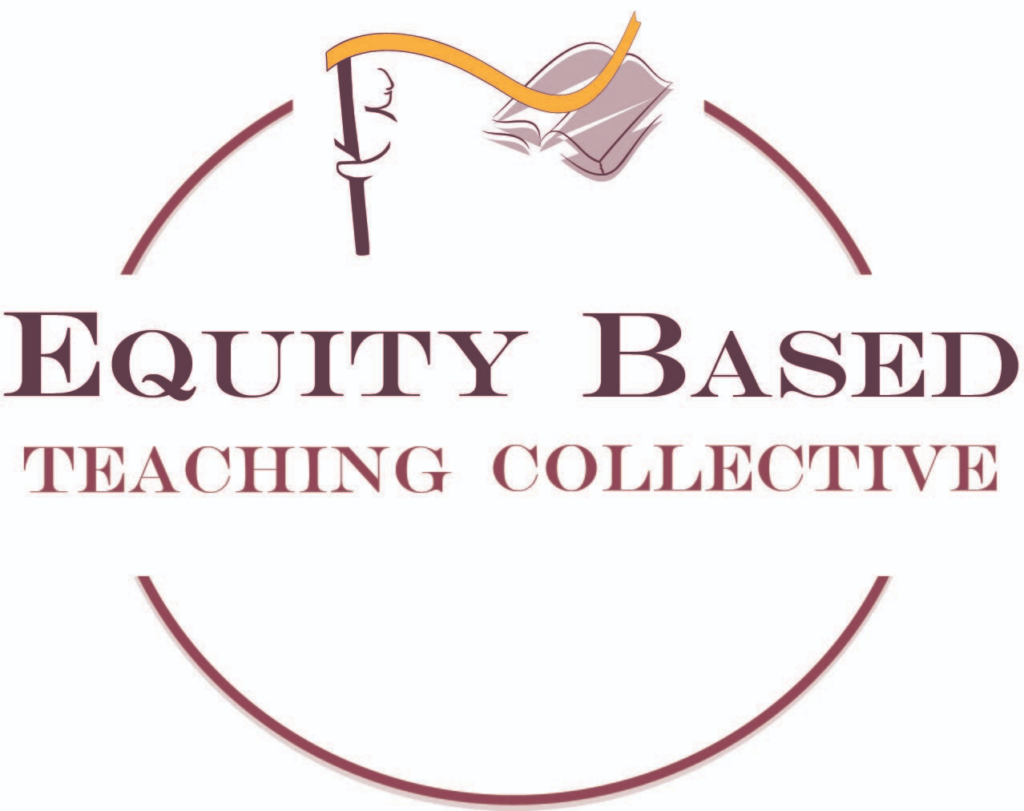
The Equity-Based Teaching Collective (EBTC) is a group of scholars committed to advancing equitable teaching in higher education. They are composed of principal investigators and team members across three institutions: American University, Florida International University, and the University of Connecticut.
Advisory Board
We extend our deepest gratitude for the time and guidance from our advisory board members.
Ariel Anbar
President’s Professor, Distinguished Global Futures Scientist, Howard Hughes Medical Institute
Professor, School of Earth & Space Exploration, School of Molecular Sciences, Arizona State University
Marcy Baughman
Executive Director, Learning Science and Insight, McMillin Learning
Kerry Brenner
National Academies of Sciences, Engineering, and Medicine
Tia Brown McNair
Partner, Sova, and Senior Consultant, American Association of Colleges and Universities (AAC&U)
Catherine Dignam
Professor, Chemistry, Framingham State University
Rebecca Karoff
Associate Vice Chancellor for Academic Affairs, University of Texas System
Judy Marquez Kiyama
Professor, Center for the Study of Higher Education, University of Arizona
Marco Molinaro
Executive Director for Educational Effectiveness & Analytics, University of Maryland
Oluwafikemi Oyeniyi
Student, Talladega College
Tershia Pinder-Grover
Director, Center for Research on Learning and Teaching in Engineering, University of Michigan
Johnny Poolaw
Director of Student Success, AISES (American Indian Science and Engineering Society)
Elena Quiroz-Livanis
Chief of Staff and Assistant Commissioner for Academic Policy and Student Success – Massachusetts Department of Higher Education
Jaclyn Reeves-Pepin
Executive Director, National Association of Biology Teachers
Jessica Rowland Williams
Senior Director of Client Service Delivery, Georgia State University National Institute for Student Success
Ethan Strange
Doctoral Student, Oklahoma State University
Kim Thanos
Founder & CEO, Lumen Learning
Frank Tuitt
Professor, Higher Education, University of Connecticut
Karen Vignare
Executive Director, Personalized Learning Consortium, Association of Public and Land Grant Universities
Cassandra Volpe Horii
Associate Vice Provost for Education, Director of the Center for Teaching and Learning, Stanford University
Fay Yokomizo Akindes
Director of Systemwide Professional & Instructional Development, University of Wisconsin System
Equity-Based Teaching in Higher Education:
The Levers that Institutions Can Use for Scaling Improvement

Infographic Text
Focus of this EBTC Report: Institutions, Departments/Programs, Student Support Services, Courses/Faculty, Students
Disciplines
- Disciplinary Paradigms
- Disciplinary Associations
- Understandings of EBT
Communities
- Families
- Cultural Wealth
- Neighborhoods
- Public Opinion
States and Federal Landscape
- Policy
- Socio-Political Context
- Resources
Associations and Businesses
- Higher Education Associations
- Rankings and Classifications
- Local Business
Funders
- Foundations
- Government
